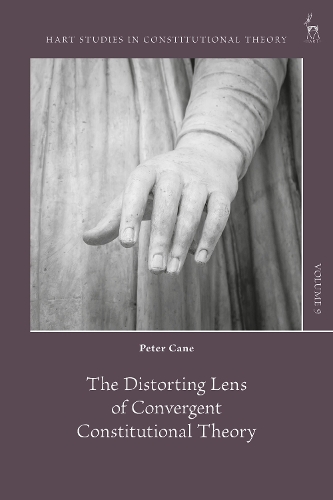
The Distorting Lens of Convergent Constitutional Theory
(Hardback)
Publishing Details
The Distorting Lens of Convergent Constitutional Theory
By (Author) Professor Peter Cane
Bloomsbury Publishing PLC
Hart Publishing
24th July 2025
United Kingdom
Classifications
Professional and Scholarly
Non Fiction
Comparative law
342
Physical Properties
Hardback
152
Width 156mm, Height 238mm, Spine 14mm
377g
Description
This book challenges the near-universal acceptance of a US-style, Western constitutional paradigm as the best basis for comparative constitutional studies. It does so on three main grounds: anachronism, othering and cultural specificity.
Main pillars of convergent constitutional theory are rooted in the revolutionary, late-eighteenth century a lost world; constitutional arrangements that deviate from the paradigm are often branded as outliers or even as not constitutional at all; and the foundations of the paradigm in liberal democracy give no space for other forms of constitutionalism. Whatever the attractions of convergent theory as a normative ideal of good government, for the purposes of understanding, analysing and explaining constitutional systems it is far from ideal.
This book discusses and questions the convergent theorys weddedness:
To writing as the technology of constitution-making; its image of a constitution as fundamental law
Its idea that constitutionalism rests on sovereignty of the people
Its use of tripartite separation of powers as the basic principle of institutional design
Its relative neglect of administrative law
Its association of rights with judicially enforceable bills of rights; and
Its obsession with a rather unspecified concept of democracy.
It makes suggestions for alternative, preferable methods of understanding, analysing and explaining constitutions, and governmental and constitutional systems.
Author Bio
Peter Cane is Senior Research Fellow, at the University of Cambridge, UK, and Emeritus Distinguished Professor of Law at the Australian National University.
